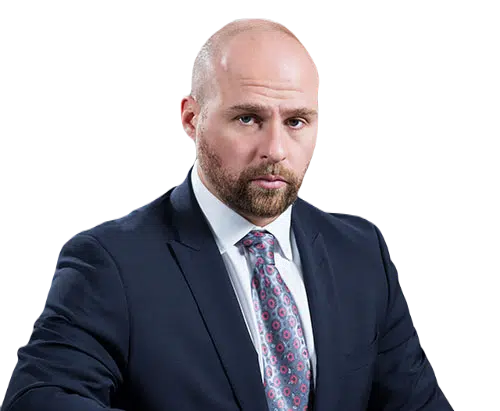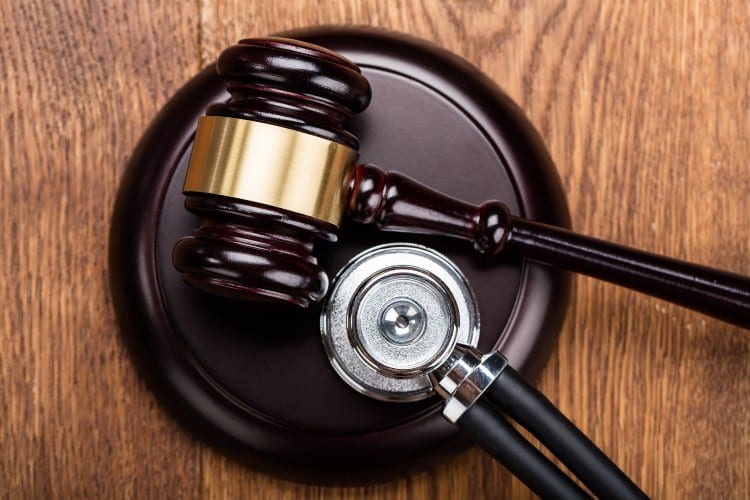
Every day, patients in the state of New Jersey entrust medical professionals with their ailments in they hopes that they may employ their expertise to nurture them back to health. In a majority of cases, patients and their loved ones walk away fully satisfied with the attention they receive.
However, if your doctor did not provide the standard of care that every patient is owed and ultimately caused you harm or even the death of a loved one, then it’s time to seek legal help.
When patients are wronged by their doctors or other medical staff responsible for their health, it is the absolute right of these victims of medical negligence to seek justice. Contact us today to get started on the path to justice via a free case review.

New Jersey’s legal code provides victims of medical malpractice with powerful options for achieving justice. Call our New Jersey medical malpractice lawyers today to learn more. Through a free legal consultation, our team will analyze your case and explain all of the legal options available to you.
Compensation for your physical injuries and suffering is possible. Let us help you achieve it.
Medical negligence and medical malpractice are the general terms used to describe situations in which a doctor or other medical personnel is accused of causing undue harm to a patient under their care.
Since a doctor is usually the figure in charge of the health of a patient as a whole, even if the injury is caused by a nurse, they can still be found responsible for the negligent medical care. Negligence can result from any of the following:
For some patients, it can seem a simple task to prove that a doctor was negligent in their care simply because their health declines after a procedure or prolonged treatment. However, medical malpractice claims are often extremely complex and often result in prolonged litigation. Indeed, it is not out of the ordinary for medical negligence lawsuits to take multiple years to resolve. In comparison, similar personal injury cases such as a slip and fall lawsuit or workers’ compensation claim are often resolved in months if not weeks.
The word malpractice speaks to an improper act or one which goes against the normal or established practice. The terms medical malpractice and medical negligence are often used interchangeably – you can expect as much on this page. Negligence itself is also used to describe a dereliction of duty, much like the proper term ‘malpractice’ refers to, which makes it widely accepted in this context.
In the context of healthcare, malpractice refers to situations in which a doctor or other medical professional does not follow universal or agreed-upon guidelines when treating a patient. In steering away from the normal conduct or method, some form of damage is caused to the patient.
The damage may be physical, emotional, or of another nature, though in the end, it will be up to the victim and their medical negligence attorney to establish any and all damages that were suffered.

There are two broad categories of damages that are awarded in medical malpractice lawsuits in New Jersey; they are compensatory damages and punitive damages.
Compensatory damages, stemming from ‘compensation,’ are awarded to make up for economic and non-economic losses that the victim will have suffered. Some examples of compensatory damages include:
Punitive damages, on the other hand, are awarded as a deterrent to other individuals who could commit a similar misgiving as the defendant who is found guilty. For instance, if a doctor is found to have been over-prescribing a specific medication because it resulted in them earning monetary “kickbacks,” but the medication was not the standard for treating the diagnosed ailment, then a court could award substantial punitive damages so as to deter other doctors from engaging in the same practice, as well as drug manufacturers from encouraging it.
As we alluded to earlier, many patients who find themselves dissatisfied with the outcome of a specific doctor’s appointment, diagnosis, procedure, or treatment may consider pursuing legal action against the health professional via a medical malpractice lawsuit. However, this is hardly a stable basis upon which to build a sturdy medical malpractice claim.
Medical negligence lawsuits can take so much time to resolve because proving malpractice is quite arduous. Further down this page, we discuss the four main points that must be established in court for a patient to win a medical negligence case and be awarded a significant compensation. If you continue reading, you will see how dissatisfaction or lack of success in treatment is not one of the required circumstances for a case to be successful.

If you believe that a hospital and its staff mishandled or mismanaged your care, then it is quite likely that a medical malpractice attorney is the kind of legal representative that would best suit your case. However, how can you know when to seek a medical malpractice lawyer, or if you even have a case?
The simplest way of knowing if you have a malpractice or medical negligence case is to contact a local medical malpractice law firm. By discussing the circumstances of your injuries, or perhaps the death of a loved one, you will learn if filing a legal claim is in the cards.
It is quite normal for the surviving family members of a victim of medical malpractice to pursue justice via a lawsuit, and it is perfectly permitted by the civil code of the state of New Jersey. Dependents of the victim would ultimately be awarded the damages and while this usually entails direct family members, exceptions can be made depending on the case.
If you’re unsure whether you can file a medical malpractice lawsuit, contact our experienced medical lawsuit attorneys today for a free legal consultation. We’ll explain all of the legal options at your disposal at no cost to you, and you’ll finally have the information you need to make such a critical information not only for yourself but also for your loved ones.
In order to prove that a doctor was negligent in your healthcare or that of a loved one, there are four basic tenets that must be proven in court. These are colloquially known as the “4 D’s of Medical Malpractice.”
Here are the four “pillars” upon which most successful medical malpractice lawsuits stand, along with a brief description of each:
